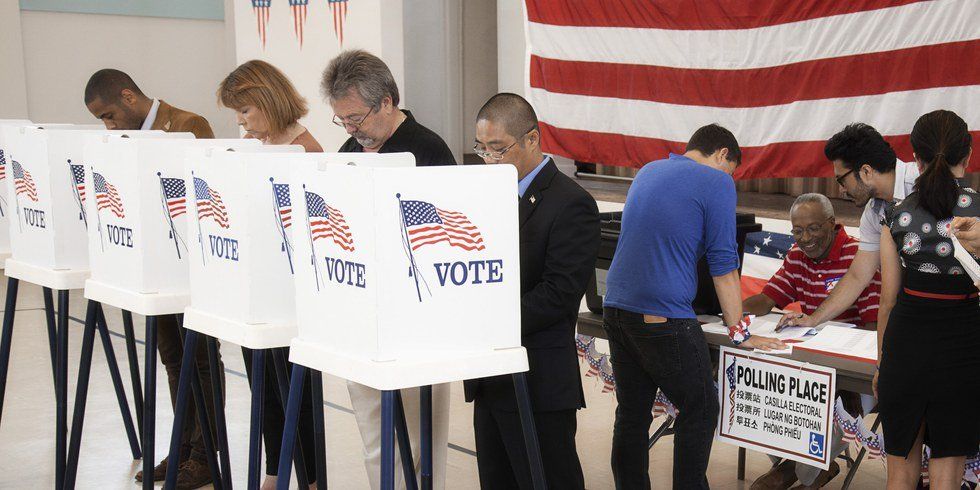The day before the election, I was texting my father about the “lesser evil” of the two presidential candidates. Now, you might think that determining who was the lesser evil of the two candidates would be as simple as determining whether we were Democrats or Republicans. The only problem is that my father and I don’t consider ourselves to be Democrats or Republicans. While my upbringing is often considered conservative, it’s not like I had a GOP elephant for a stuffed animal or a poster of Ronald Regan hanging on my wall. Instead, I was raised Roman Catholic and for my family, being Roman Catholic meant being on the conservative side of the political fence more often than not. This was especially true when it came to issues such as abortion and same-sex marriage. And now that I no longer consider myself a Catholic, I no longer tend to be on the conservative side of the political fence. This lack of association is why my father and I had very different opinions on who was the lesser evil of the two presidential candidates.
Eventually, our text conversation grew so verbose and convoluted that we decided to FaceTime later on to better discuss the election. I already knew that I couldn’t convince him or my mother to vote for Hillary Clinton, but I thought I might be able to convince them to simply not vote at all. While I realize many people may see this as encouraging apathy or trying to deny someone their right to vote, I felt obligated to dissuade my parents from voting for who they considered to be the lesser evil. I failed of course, but I like to think that I at least made them reconsider their vote for a moment.
On Election Day, my parents weren’t the only people in my life who probably voted for Donald Trump. But like a large portion of the country, I thought Clinton had it in the bag. And also like a large portion of the country, I was shocked by the results of the election. Some of my friends cried that night, due to the fact that their very lives were now potentially at risk. Others rejoiced, looking forward to the bright future that Trump had promised. Personally, I didn’t cry or rejoice. My life wasn’t at risk, but I certainly wasn’t looking forward to the future he promised.
There was an overwhelmingly negative response to the election results at Ithaca College, which really shouldn’t have surprised anyone. The entire campus seemed to be in mourning, and once the initial sorrow subsided, anger took its place. This anger was not only directed towards Trump, but also towards those who voted for him. To be fair, I found myself upset at those I knew who probably voted for him. I often wondered how could they vote for such an unqualified, egotistical, and depraved megalomaniac. But this was just part of the problem. You see instead of understanding that some Trump voters were simply misled and misinformed, there is a tendency to consider all of them as hateful and ignorant as the white supremacists that also voted for him.
Now does this distinction somehow absolve Trump voters of being responsible for getting him into the Oval Office? Of course not. Plenty of them were well aware of his harmful policies regarding immigrants, minorities, and the environment. And they should be made aware of the negative consequences that these harmful policies will undoubtedly have. By constantly telling all Trump voters that everything he does is their fault, however, we only alienate them further. This may not sound like a bad thing, but I believe that as these four years drag on, some Trump voters will realize the mistake they made. And when they do, they might want to make up for this mistake by standing with people that their vote may have harmed. But if we continue to throw all Trump voters under the same hate-spewing bus, we deny them the chance to realize their mistake and make up for it.
However, instead of just going out and hugging a Trump voter, I suggest you take this article with a grain of salt. Why? Because everything I have said comes from a position of privilege. As a straight, cisgender white man, I’m part of the demographic that will be the least affected by the actions of the Trump administration. And as someone who was once conservative, it is easier for me to feel sympathy for Trump voters. So does all this make my article completely irrelevant? I’ll leave that up to you.





















